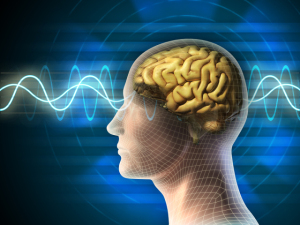by
Lauren Dubinsky, Senior Reporter | September 23, 2014
A brainwave test that measures the amount of time the brain responds to sights and sounds might be able to identify how severe a patient's autism is and also help diagnose the condition sooner, according to a paper published yesterday in the online edition of the Journal of Autism and Developmental Disabilities.
One in 68 children have been diagnosed with autism spectrum disorder (ASD), according to the U.S. Centers for Disease Control and Prevention. Depending on the severity of the condition, the symptoms can vary from mild social and communication problems to significant cognitive impairments.
Right now, there isn't a medical test to diagnose autism. Instead, physicians evaluate a patient's behavioral characteristics and symptoms.
"These assessments can be highly subjective and require a tremendous amount of clinical expertise," Dr. Sophie Molholm, leader of the study and associate professor at Albert Einstein College of Medicine of Yeshiva University, said in a statement. "We clearly need a more objective way to diagnose and classify this disorder."
Brainwave electroencephalogram (EEG) recordings might be the objective test physicians need. A study that Dr. Molholm conducted two years ago found that EEG might be able to show how severely ASD patients are affected.
For this new study, the researchers at the university set out to determine if sensory processing varies depending on the severity of autism. They pooled together 43 ASD patients between six and 17 years old and attached 70 scalp electrodes to each of them.
They then showed them either a simple auditory tone, an image or a tone combined with an image and told them to press a button as soon as they heard the noise, saw the image or experienced both. They found that the more time it took the patients to process the auditory signals, the more severe their autistic symptoms were.
They also found that there was also a smaller correlation between how fast the patients processed the combination of audio and visual signals and the severity of their ASD.
"This is a first step toward developing a biomarker of autism severity — an objective way to assess someone's place on the ASD spectrum," Dr. Molholm said in a statement. "Using EEG recordings in this way might also prove useful for objectively evaluating the effectiveness of ASD therapies."
The EEG recordings might also help physicians diagnose ASD sooner, which in turn leads to earlier treatments and better outcomes. Right now, less than 15 percent of ASD patients are diagnosed before four years of age but this new technology might bring that percentage up.
Back to HCB News

Jennifer Cacciatore
Brainwave test in Diagnosis for Autism
September 25, 2014 06:57
My 6 year old son has been diagnosed with "Autism Spectrum Disorder." He was diagnosed at 2 yrs old, and the doctors did not indicate to me that there was something wrong with him...it was his Speech Therapist through Early Intervention Services who told us that he had "global delays" and that we should take him for an Evaluation by a Developmental Pediatrician. These Specialists are not the ones who spend the valuable time with these children to see their delays and strange behaviors...it is the therapists and the parents who see abnormal traits. Diagnosis fails because parents don't know who to turn to when their children are not developing normally, and it usually takes 12-18 mos. just to have a child be examined by a Development Pediatrician. Our healthcare system is flawed here, not the diagnostic tests for autism.
to rate and post a comment